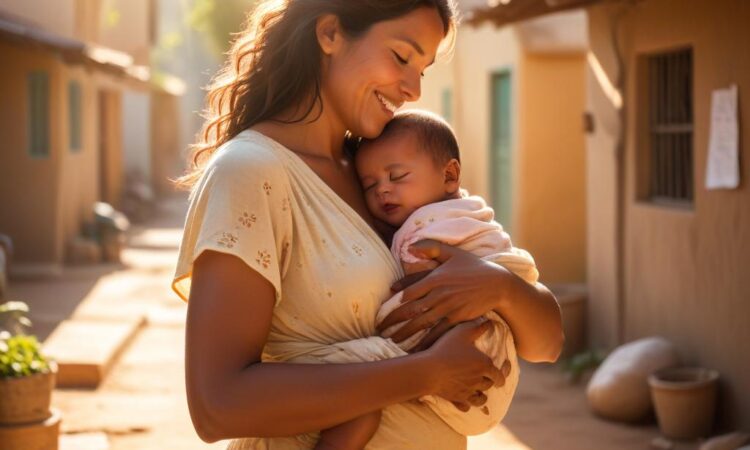Mom & Kid Health: A Huge Gap Between Rich and Poor Countries
Okay, let’s talk about something super important, but sadly, a bit depressing: the massive difference in how moms and kids are doing in rich countries versus poor ones. We’re seeing reports popping up all over the place highlighting this crazy disparity, and it’s time we all paid attention.
Think about it – in wealthier nations, moms usually get fantastic prenatal care, easy access to hospitals with skilled birth attendants, and top-notch postnatal checkups. Their babies get vaccinated, fed properly, and have a good chance at a healthy start. It’s not perfect, of course, but it’s a pretty good system overall.
Now, flip the script to low-income countries. The picture changes dramatically. Many women don’t have access to even basic prenatal care. Think about trying to get checkups when you’re miles from a clinic, maybe don’t have transportation, or can’t afford the fees. Giving birth can be terrifying, often happening at home with untrained helpers, leading to higher risks of complications for both mom and baby.
And it’s not just childbirth. After the baby is born, the challenges keep coming. Lack of clean water, poor sanitation, inadequate nutrition – these things are daily struggles in many low-income areas. This makes it way harder for babies to thrive and grow strong. Infectious diseases run rampant, and access to vaccines is often limited or nonexistent.
These reports are showing us some seriously alarming numbers. We’re talking about significantly higher rates of maternal mortality (moms dying during pregnancy or childbirth), infant mortality (babies dying in their first year), and child malnutrition in low-income countries. It’s heartbreaking to even think about.
So, what’s the big deal? Why should we care about this gap? Well, for starters, it’s simply morally wrong. Every mom and every child deserves a chance at a healthy life, no matter where they are born. It’s a matter of basic human rights.
Beyond the ethical aspect, it has wider implications. When a significant portion of the global population faces these health challenges, it affects everyone. It hinders economic development, creates instability, and can even contribute to global health crises.
But here’s the good news (or at least, the hopeful part): these problems aren’t insurmountable. We have the knowledge, the technology, and the resources to make a real difference. The key is to focus on improving healthcare access and resources in low-income countries.
This means investing in things like community health centers, training healthcare workers, providing essential medicines and vaccines, and improving sanitation and nutrition. It also means tackling the bigger issues – poverty, gender inequality, and lack of education – that often underpin these health challenges.
We need strong partnerships between governments, international organizations, NGOs, and individuals to achieve this. It requires a global effort, and it won’t be easy, but it’s absolutely necessary.
Think about improved infrastructure – building roads to make it easier to reach remote communities, providing clean water sources, and improving sanitation systems. Imagine training local healthcare workers so they can provide care in their own communities. Visualize increased access to essential medications and nutritional supplements.
These improvements aren’t just abstract ideas; they’re tangible steps that can save lives and transform communities. We need to push for policies that support these initiatives, advocate for increased funding, and hold decision-makers accountable.
This isn’t just about numbers on a page; it’s about real people – moms and kids who deserve a chance at a healthy, fulfilling life. Let’s work together to bridge this gap and create a world where every mother and child has access to the healthcare they need.
We need to make a change, and that change starts with us. Let’s raise awareness, donate to organizations working on the ground, and advocate for policies that support maternal and child health in low-income countries. Even small actions can make a difference.
This isn’t about charity; it’s about global justice and creating a healthier, more equitable world for everyone.

